- Learning time
- 90 minutes
- First play time
- 180 minutes
Xia: Legends of a Drift System
Designed by: Cody Miller
Xia sees you as fledgling space-faring adventurers in a galaxy far, far away, in who knows what time or reality. You begin with a single spaceship at your disposal, on a cluster of hexagonal board pieces – the game begins small, but will grow! Unlike many titles that tread a linear path (a set number of rounds, for instance, or a clearly defined goal) Xia is a ‘sandbox’ game – there are many things you can do on your turn, and there are different approaches you can take. Trading is one: buying cargo from one planet and selling it at another. Exploration is another: you can travel far and wide grabbing exploration tokens. You can be combative and try and blow your fellow starfarers up. And you can take on missions (lawful, or otherwise) that when completed bring some kind of bonus – usually cash.
All of these things are rewarded with Fame points: the game’s ultimate objective. Before you begin players set a winning target (5 is recommended for a first play) or agree an end-time to the session. You’re trying to bolster your rep around the galaxy, by fair means or foul, and completing any of the tasks above helps do so. There are other ways to get fame too: by helping out a stranded player (more on being stranded later), buying a new, better, spaceship, paying for fame with wealth, or simply being lucky and rolling 20 on a 20-sided-die.
Those the are goals, anyway. But how do you go about achieving them? Well, beneath Xia’s grand, space-opera surface is actually a dice-driven, luck-pushing bunch of mechanics. You’ll start with four armed (- armed meaning at your disposal) markers on your ship, and markers are spent taking actions: movement, combat, missions and trading all involve expending a marker. Some minor actions are free, but generally these are the fuel for the engine of progress. Your ship has a hold into which you must fit in as much as you can – as well as your engine, you might also add a weapon or a shield against weapons. All of them have activation spots: you place a marker on the spot in order to roll a die: for movement, for attacks, for defence. Or markers may become disarmed by starting/ending missions or buying/selling cargo – cargo too must fit into your hold!
When you’re out of actions, you can spend Energy (also tracked on your ship) to re-arm them. The catch is of course that this means you’re always running out of energy, and can only recharge your energy by ending on a planet – which might not be where you want to be… if you’re out of markers and out of energy, that’s not a good place to be. You always have some minimal movement (called impulse) but you’re otherwise considered stranded. Players can fly alongside you and donate energy – helpful for you, but them too, as they’ll get fame for their benevolence…
As your travel around, Xia’s board slowly grows by adding more and more hexes. You can spend energy to scan before revealing the new hex, or you can hold your breath and charge headlong into it – the risk being you might fly into a star, be wiped out by an asteroid or take ship damage from debris. Just like being blasted to smithereens by a fellow player, you may find yourself eliminated from the galaxy – but not the game. Death in Xia, whilst not being particularly helpful, isn’t the end after all. Although you lose any cash, missions, and cargo, you also lose any damage and will respawn and return to the game on your next turn.
Assuming you’re not dead, Xia’s various hexes contain more than just planets and hazards: there are gates which allow quantum leaps around the board, and the various borders to certain locations mean that danger is always lurking.
Something else runs through the entirety of Xia, and that’s how you play. Everyone starts out lawful, but illegal operations – such as trading on outlaw planets or crossing planet shields instead of using the proper entrance – will turn you into an outlaw. Xia is designed to tempt you to do these things, as they are spectacular time-savers for trading, missions (which themselves are often unlawful) and generally getting around. But becoming outlaw can be problematic, as the more bad stuff you do, the more the bounty on you grows – a bounty that other players can claim by blowing you up. Better get that shield!
There are other little elements too: if you decide to splash out on Xia’s highly-rated game expansion Embers of a Forsaken Star, there’s slightly tweaked trading system that utilises an Economy board. If your head is beginning to swim, worry not: the rules for this board are no more than two paragraphs long and pretty straightforward. We don’t normally touch on expansions on GNG, although many games have them, but we recommend Embers highly – not only does it add some nuances and extra stuff like comets and space stations, it also allows for upgrades that can negate some funky dice-rolling.
And so players circle the planets, hazards, and each other, completing missions and trade, sometimes blowing each other up, sometimes being slightly less psychotic, and basically trying to be the biggest baddass around. If you’re unsure about what really is a space opera, grand in every way, then as noted above, you can simply agree to play for two hours and whoever leads at that point (make sure you all have the same amount of turns!) is the winner. Or you can just play all day. And all night. And keep going forever.
Joe says
I enjoyed my one play of Xia so far. It feels quite old school - rolling a dice to move, for heaven's sake! - but not in a bad way. If you, like me, have a hankering for the long lost Sundays of youth spent playing long, engrossing board games (a recovered memory of a time that never was, in reality), Xia will fit the bill nicely. It fulfils the promise of the sort of thing Steve Jackson Games and Games Workshop were putting out in the 1980s - complicated games that took the innovations of D&D and applied them to milieu that were less arcane and fusty, but rarely less complicated. Xia is most definitely a board game, not a role-playing experience, but one with a strong sense of narrative that isn't interrupted (at least not too much) by having to consult reams of rules and exceptions. A more modern comparison, for me, would be Western Legends, which has a similar sand-box feel; it lacks Xia's sense of exploration, but retains the lawmaker/lawbreaker paths and sense of comedy in the unfolding narrative. And no roll-to-move.
The guru's verdict

-
Take That!
Take That!
Definitely present - although it does depend to an extent on how you and your fellow players approach the game. If everyone is fighting, the Darwinian survivalist strategy might be to duck out and sneak around the edges. But however Xia is played tactically, at some point the dice will bite.
-
Fidget Factor!
Fidget Factor!
High, dropping to moderate with familiarity. Turns aren't brief - although you have a maximum of four markers to disarm, events during your turns can slow things as you pick up missions or explore or initiate combat. Xia's best played with plenty of time to enjoy the journey.
-
Brain Burn!
Brain Burn!
Surprisingly low. Although learning the rules is something of an epic itself, once you know them the basic actions are actually very simple: the geography of the galaxy itself and the movement of opponents bring extra considerations, but a lot of the time it's very simple: This mission requires me to fly there, so that's where I'll go. Or I have X type of cargo, so I'll go here and sell it. Or player Y has got a big bounty on their head, so I'll blow 'em up.
-
Again Again!
Again Again!
Even without the expansion there's a lot of variety in Xia: not only in the randomness of how the hex tiles come out, but the missions too, the dice-rolling, and that's before you get to input from the players themselves. How you play the game can vary greatly.




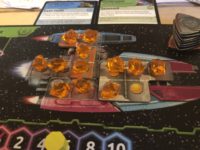
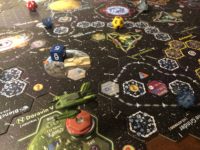
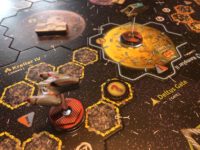
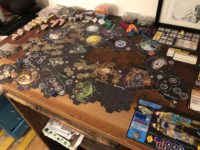


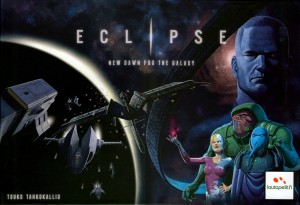
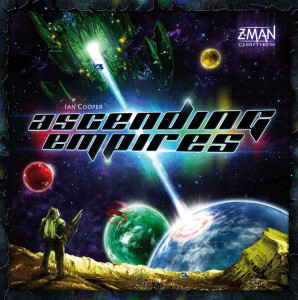

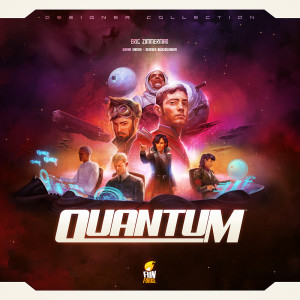

Sam says
Recommended!!! Caveats: you obviously have to like the idea of going into space and being a kind of nomadic, temperamental, trigger-happy nutjob whose one desire in life is to be famous. Or infamous. When you break it down to a base emotional level Xia has a certain vapid shallowness... but it is just so much FUN. A specific type of fun - there's no gentle harvesting of resources here or puzzling out various cogs in the manner of something like - to clutch an example out of the air - Castles of Burgundy. While I like Castles of Burgundy sometimes I simply want to fall into complete escapism - and escapism fuelled by the slings and arrows of fortune. Like Eclipse (another space game I like) Xia is a big experience: there's a lot to take on board, and a first play has a considerable learning curve. Unlike Eclipse, Xia doesn't engineer you all towards each other in a narrative that forces epic battles. You can, should you choose, avoid combat entirely and play the game entirely lawful, exploring, trading, completing peaceful missions. You can go completely despotic and attack everyone, trying to build a rep based on being completely unhinged. You can concentrate on missions; you can focus on exploring; you can most likely combine in some way all of these things. I feel like the designer designed the game that he really wanted to play, and it really shows. I love Xia because of the freedom it gives you. You need to be okay with terrible luck hitting you (the Embers expansion goes some way to negating this slightly) but it's also part of the fun. And you need to be okay with being blown up too - there's never a good time for that. Assuming you are; assuming you or someone is willing to learn and teach Xia, you might well be playing it for years.